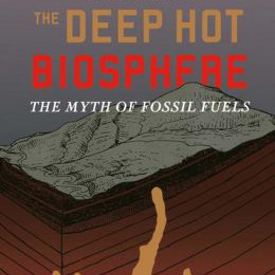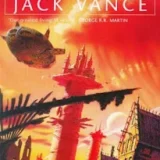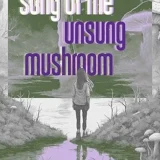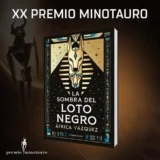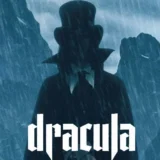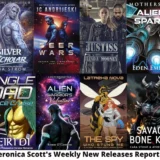
Today we are joined by science fiction legend Dr. Ben Bova. Ben has served as an editor of both Analog Science Fact & Fiction and Omni magazines. He has written over 120 books of fiction and non-fiction. His razor-sharp mind is trusted by both the scientific community and Hollywood. As evidence, he was elected a Fellow of the American Association for the Advancement of Science (AAAS), served on a NASA/Space Transportation Steering Committee, worked as a manager in a research laboratory, served as technical advisor for feature films such as Repo Men (2010), and shares his vision of the future wherever and whenever the audience is wise enough to listen.
In 2013, Ben will release a total of three science fiction novels, including New Earth, which launched in mid-July. The trophy case in his Florida home has grown so full that it has developed its own gravitational well. His awards include six Hugos, the John W. Campbell Memorial Award, the Robert A. Heinlein Award, the Lifetime Achievement Award of the Arthur C. Clarke Foundation, and many others. Ben has served as the president of the Science Fiction Writers of America and is President Emeritus of the National Space Society. When not collecting awards or offering scientific insight, Ben spends time at his vacation homes on Mars and Titan.
R.K. TROUGHTON FOR AMAZING STORIES: Welcome to Amazing Stories, Ben. A great deal of ink has been spilled describing the influence editor John W. Campbell had on the science fiction industry. Many credit him with forging the Golden Age of science fiction. After his unexpected death in 1971, you were tapped as the heir to his legacy at Analog. The task of following such an epic figure could be overwhelming for many, but you managed to excel, earning six Hugo Awards for Best Professional Editor. It could even be argued you were the most influential science fiction editor of the 1970s. Please share with us how you were selected and what it was like following in the footsteps of a legend.
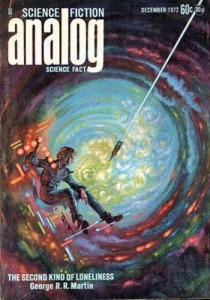 BEN BOVA: When John Campbell unexpectedly died, Analog was published by The Condé Nast Publications, Inc., a major New York magazine publisher. They had acquired Astounding Science Fiction Magazine (as it was known then) when they absorbed Street & Smith Publications, more than a decade earlier. They didn’t know anything about their newly-acquired science fiction magazine, except that Campbell ran it, it made a profit every month, and it was number one in its field.
BEN BOVA: When John Campbell unexpectedly died, Analog was published by The Condé Nast Publications, Inc., a major New York magazine publisher. They had acquired Astounding Science Fiction Magazine (as it was known then) when they absorbed Street & Smith Publications, more than a decade earlier. They didn’t know anything about their newly-acquired science fiction magazine, except that Campbell ran it, it made a profit every month, and it was number one in its field.
The management asked Katherine Tarrant, Campbell’s long-time assistant, to draw up a list of possible successors to the editor’s position. They wanted persons who had written for the magazine, both fiction and nonfiction. Katherine, in turn, asked several of the regular contributors to draw up such lists. My name was on every list.
I was a part-time writer in those days. I had a career at a high-powered research laboratory in Massachusetts. But when asked to become Analog’s new editor, I felt it was like being drafted to run for President of the United States. You might be afraid that you’ll screw up, but you can’t say no.
Actually, editing Analog was a joy. The magazine had a very loyal readership who had nowhere else to go to get the kind of stories they wanted: hard science fiction, well written. However, I felt it was important to break new ground, gradually. I didn’t want to “lead” the readers so far from their usual haunts that I lost them.
A few of the readers disagreed with some of the stories I published, but most liked the fresh breeze. Circulation increased, and Analog continued to be the leading magazine in the science fiction field.
ASM: As an editor of both Analog and Omni magazines, what were the biggest challenges you faced? What were the greatest rewards?
BB: The biggest challenge I faced as editor of Analog was to bring new insights and new attitudes to the magazine, without destroying its base. I didn’t want to throw out the baby with the bathwater. The management was very cooperative: as long as Analog remained profitable – and won awards – they were happy.
My greatest reward was discovering new writers such as Orson Scott Card, Spider Robinson, Vonda McIntyre, Joe Haldeman and many others. Plus having stalwarts such as Frederic Pohl, Harry Harrison, Gordon Dickson, et al. contributing brilliant stories.
ASM: In 1971, a little known filmmaker named George Lucas directed and co-wrote a film called THX 1138. You adapted the film into a novel. Please tell us about the experience and how you came to be involved with the project.
BB: My agent at the time, Robert P. Mills, phoned to tell me that Warner Books wanted a novelization of Lucas’ upcoming film – in something like thirty days, so they could bring out the book at the same time that the movie was released to the theaters.
I was going through a bitter (and expensive) divorce, and the money being offered was certainly welcome. So I went to San Francisco, met Lucas, watched a rough cut of the film, then went back home and wrote the novel. I delivered on time, although Warner Books managed to lose the last three pages of my manuscript, so that their book ended with THX being pursued by the bad guys, without a resolution. No matter, the movie bombed at the box office and the book quickly disappeared from the stores.
However, once “Star Wars” made Lucas a celebrity, the novel was reissued (with the last three pages!) and has been earning royalties ever since.
 ASM: Over the years you have proven to be a prolific writer, penning more than 120 fiction and non-fiction books as well as countless short stories, articles, and essays. Recently you released your novel, New Earth, as the next installment of a set you call the Grand Tour. For those not familiar with your work, explain the Grand Tour and give us a taste of what we will find when we travel to New Earth.
ASM: Over the years you have proven to be a prolific writer, penning more than 120 fiction and non-fiction books as well as countless short stories, articles, and essays. Recently you released your novel, New Earth, as the next installment of a set you call the Grand Tour. For those not familiar with your work, explain the Grand Tour and give us a taste of what we will find when we travel to New Earth.
BB: The term “Grand Tour” came from my readers. The novels show how the human race expands through the solar system – how, and why, and by whom. As well as who opposes this expansion, and what’s happening on Earth to motivate it. Thus we have novels about the Moon, Mars, Jupiter, Venus, Saturn and Mercury, plus a few more set in the Asteroid Belt.
NEW EARTH takes us beyond the solar system for the first time. A group of human explorers journeys to an Earthlike planet orbiting the star Sirius. According to all we know of astrophysics, that planet shouldn’t exist. It should have been blasted apart when Sirius’ dwarf star companion exploded, eons ago. But there it is, impossible or not, an almost exact duplicate of Earth. And it turns out to be inhabited by people who are completely human.
Is it for real? Or a trap?
ASM: One stop on the Grand Tour won the 2007 John W. Campbell Memorial Award for Best Novel. What can readers expect to find inside your novel Titan?
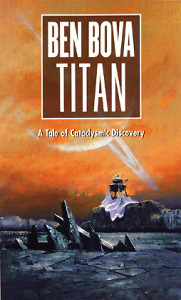 BB: TITAN is about the exploration of Saturn’s largest moon – and the politics of the space habitat orbiting Saturn, where the scientists live with thousands of political refugees, who have been exiled from Earth by the authoritarian governments that have come to power in the wake of catastrophic climate change.
BB: TITAN is about the exploration of Saturn’s largest moon – and the politics of the space habitat orbiting Saturn, where the scientists live with thousands of political refugees, who have been exiled from Earth by the authoritarian governments that have come to power in the wake of catastrophic climate change.
ASM: Part of what makes your science fiction so dynamic is your deep understanding of science. Over the years you’ve been called upon by numerous groups as a visionary of the future. Having witnessed the transition from humanity’s first steps on the moon to our modern electronic world where a manned mission to Mars barely makes headlines, do you feel that science and technology have progressed as you expected? Has progress been slower or faster than you anticipated?
BB: I am not a professional scientist, but I have worked with some of the top scientists in the world, and learned a bit about how they live and think. I am appalled that we stopped going to the Moon. I am worried that know-nothing ultraconservatives are gaining a grip on our government. I am even more concerned that so many people fear scientific advances and are willing to stop some lines of research.
Yes, we have made wonderful progress in communications technology, and in biomedical research. But will our digital gadgets be used to amuse and divert the average citizen, while at the same time being used by the people in power to control the masses? Democracy is an ongoing experiment, and this generation has to be on its guard, just as earlier generations have had to fight for their freedom.
ASM: In your Orion series, the protagonist travels back in time to different points in history. If Orion travelled back to your youth, what would he discover as the catalyst for your interest in science? What was your first exposure to science fiction?
BB: Orion aside, my interest in science began with my first trip to a planetarium. I was born and raised in the narrow streets and row houses of South Philadelphia. In junior high, we were sent on a mandatory class trip to the Franklin Institute, Philadelphia’s major science museum. The Fels Planetarium was part of the museum. When they turned out the lights and turned on the stars, they turned me on, too. I was fortunate enough to be “adopted” by the planetarium’s director, Dr. I. M. Levitt, who began my education in astronomy – which led me to an interest in astronautics (this was the 1940s, when “going to the Moon’ was regarded by most people as utter fantasy). That was when I discovered science fiction: tales of the future. I’ve never recovered.
ASM: When did you know you were born to be a writer, and what was the first story you wrote?
BB: I don’t know that I was born to be a writer, but once I started reading science fiction, I soon got the itch to try my hand at writing. In 1949 (age 17) I wrote a novel about the first man to reach the Moon. It was never published, although it predicted the 1960s Space Race between Soviet Russia and the USA.
ASM: What scientists or technologies have influenced you the most?
BB: The greatest scientific influence on me – after Dr. Levitt – was Arthur R. Kantrowitz, founder and director of the Avco Everett Research Laboratory, in Massachusetts. I worked there for a dozen years, most of them as manager of their marketing group. It was like writing science fiction, except that the science was real! Re-entry heat shields, magnetohydrodynamic power generators, high power lasers, artificial hearts: AERL was much better than a university for me.
 ASM: What authors have influenced you the most?
ASM: What authors have influenced you the most?
BB: Of course there’s Shakespeare. It’s very humbling to watch or read one of his plays and realize he not only said it better, he said it three hundred years before you! I also think that Christopher Marlowe was a wonderful writer.
More contemporary writers? Ernest Hemingway, Dashiell Hammett, Harold Lamb, Edgar Allan Poe, Mark Twain, Rudyard Kipling…it’s a long list.
Among science fiction writers: Robert A. Heinlein, Isaac Asimov, Ray Bradbury, Arthur C. Clarke, Gordon R. Dickson, Fritz Leiber, Alfred Bester.
ASM: Over the years, science and technology have expanded beyond what many thought possible. What do you think are the most significant developments, discoveries, or inventions that have come along since you solved your first differential equation?
BB: The most significant discovery in my lifetime, I believe, was that of the structure of DNA. This has opened the door to a new era in biomedicine. The transistor and microprocessors. Solar cells, which will eventually power our civilization on Earth and in space. Stem cell therapies are just beginning to have what will be an enormous impact on medicine and aging: virtual immortality may be within reach. Nanotechnology holds great promise, too.
ASM: If we look ahead fifty or a hundred years, what new technology do you think will influence humanity the most?
BB: Stem cell therapies, nanotechnologies, and the eventual development of nuclear fusion power.

ASM: Your writing career has spanned seven decades. During that time, you were at ground zero as both writer and editor, watching science fiction invade society until it has become the cultural dynamo it is today. Since you published your first fiction in 1959, how has science fiction and the publishing industry changed?
BB: As you say, science fiction has had tremendous influence on virtually every field of entertainment, and has also become a respected source for understanding potential future developments.
In publishing, science fiction has grown from a “nickel and dime” niche category into a major genre. More importantly, ideas and attitudes that began in the science fiction field now permeate publishing in general, as well as movies and TV. With the advent of digital publishing, the field has mushroomed. But now that it’s possible for anyone to get published, the problem of finding good material among the flood of dross has become even more difficult.
ASM: At Amazing Stories we have a great appreciation for the history of science fiction. We always seek to understand the mosaic that has defined the industry. Please paint some texture on the following people with a few words or memories.
ASM: John W. Campbell
BB: The giant of the field, Odysseus and Heracles, all in one.
ASM: Harlan Ellison
BB: The perpetual infant terrible. Everybody knows about Harlan’s antics. Fewer know that he is a generous and true friend.
ASM: Ray Bradbury
BB: A wonderful writer who proves that you don’t need to know much science to be a great science fiction writer. But you do have to be able to write. Ray was a writer. You don’t have to say more.
ASM: Robert A. Heinlein
BB: Robert was the writer that every wannabe of my generation (including me) wanted to be. He was a prickly person, though, strictly a digital personality. He was either a hundred percent for you or a hundred percent against you. And he could flick from one to the other at the drop of a hat.
ASM: Arthur C. Clarke
BB: Perhaps the brightest of all the Great Ones. Warm, understanding, and blessed not only with a fine intelligence, but a keen insight into humanity’s future.
ASM: Gordon R. Dickson
BB: My best friend, from the moment I met him at one of the old Milford conferences until the day he died. A big Pooh Bear of a man, friendly, outgoing, and the best story doctor I ever knew.
ASM: In college, I competed in a couple of fencing tournaments. I was most proficient in foil, though I enjoyed sabre the most. If I were to challenge you to a fencing match, which would be your blade of choice?
BB: Saber. It’s more fun.
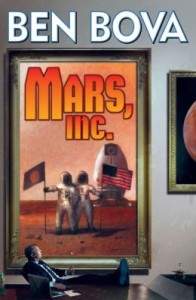 ASM: What projects are you working on now, and what can we expect to see in the future?
ASM: What projects are you working on now, and what can we expect to see in the future?
BB: Later this year Baen Books will bring out MARS, INC: THE BILLIONAIRE’S CLUB. The novel is based on my realization that a few billionaires such as Jeff Bezos and Bill Gates could fund a human expedition to Mars out of their own pockets. At the moment, I’m working on a novel together with a top NASA engineer about a mission to Mars that runs into a potentially fatal accident.
ASM: Thank you for joining us today. It has been our great honor to host you. We look forward to witnessing your visions of the future take root in the present. Before you go, is there anything else you would like to share with the readers of Amazing Stories?
BB: I’ve always had a warm place in my heart for Amazing Stories. My first short fiction and speculative science-fact articles were published in Amazing, back when Cele Goldsmith was the editor.
It’s been a pleasure being interviewed by you. Thanks for the opportunity. Ben Bova
R.K. Troughton works as an engineer, developing tomorrow’s high-tech gadgets that protect you from the forces of evil as well as assist your doctor in piecing you back together. His passion for science fiction and fantasy has been fed through decades of consumption. He is the author of numerous science fiction and fantasy screenplays and short stories, and his debut novel is forthcoming. His articles appear every Wednesday morning on Amazing Stories.



